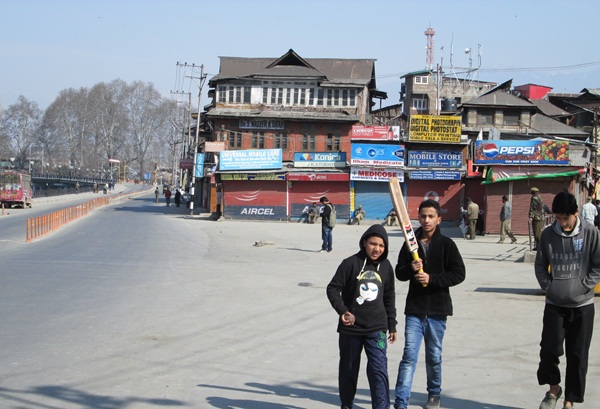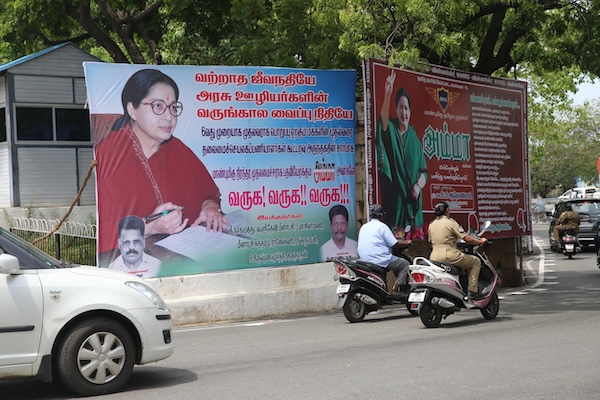.png)
Gen X at the Crossroads of Care
India’s Gen X holds two worlds at once—parents resisting frailty, children sprinting ahead. They keep households humming on vigilance and love as their own lives slip out of focus.

Kalyani Srinath, a food curator at www.sizzlingtastebuds.com, is a curious learner and a keen observer of life.
September 13, 2025 at 5:48 AM IST
It is 6:15 in the morning, and the lights are already on in an apartment in busy
Meera’s father, like many men of his generation, often behaves less like a dignified elder and more like a demanding child. He resists his doctor’s advice to use a walking cane, insisting it will “make him look old.” He watches television and YouTube, much to Meera’s chagrin, for hours but calls Meera within minutes if she leaves the room, uneasy in her absence.
Her children, meanwhile, belong to another world entirely. They are digital-savvy, sharp, and unhesitant in dismissing her worries. For them, her constant juggling is “overreacting” or “drama.” They take for granted that she will make it all happen— the food on the table, the bills paid, the lift rides to their coaching, the tuition fees transferred.
Between them both, a woman stretches, bends, absorbs. She is no martyr—she mutters, she sighs, she sometimes loses her cool. Yet the house continues to run. It always does.
Nobody is indispensable, she knows.
The Absent Sibling
Across town, Rajesh tells a similar but slightly different story. His mother slipped in the bathroom last year, and since then he’s become her shadow—taking medical leave, ferrying her to physiotherapy, filling hospital paperwork. His younger sister lives in Melbourne. She calls often, brimming with concern, her voice tinged with guilt. She sends money when needed, urges him to “take care of himself too.” But when the water heater breaks or a blood test goes wrong, Rajesh is the one standing in queue, phone in hand, navigating the bureaucracy of care.
He bears it, partly because he loves his mother, partly because he knows someone has to. The imbalance between the sibling abroad and the sibling who stays back remains one of the quiet fractures in Indian families. Rarely is it voiced—silence carries it more politely—but it deepens the weight of the one on the ground.
Ask around, and every Gen Xer has their version of this double bind. Some narrate it with humour: “I live in traffic between my kid’s coaching centre and my mother’s dialysis unit.” Some with quiet weariness: “I don’t remember the last time I sat down to think of myself.” Yet it is striking how few will admit to being overwhelmed.
In Indian culture, worry is often dismissed as unnecessary panic, while exhaustion is valorised as duty. A Gen X caregiver who breaks down is told, “Be strong. Everyone has to go through this.” And so, they soldier on, cycling between urgency for the old and urgency for the young. It leaves their bodies in perpetual alarm mode: the phone rings at 10 p.m., and their first thought is not a social call, but “What happened? Parent or child?”
Over years, this state of vigilance becomes normal—and invisible. Until hypertension strikes, or fatigue manifests as bitterness that quietly strains marriages, friendships, and their own sense of purpose.
Old Age Home Stigma
This is where cultural conditioning sharpens the imbalance. In India, senior living communities continue to be painted as punishment homes. To even suggest one taints the caregiver with accusations of selfishness. Films and television reinforce the image of abandoned parents waiting with tears in institutional corridors. The result is guilt for everyone—for elders who feel betrayed at the idea, and for GenXers who want both safety for their parents and sanity for themselves.
The shame is ironic. In reality, many elders would thrive in such communities, surrounded by companionship and medical support. But stigma lingers, forcing Gen X to preserve appearances: parents stay tethered at home, even if lonely or unwell; children stay shackled to caregiving, even if overwhelmed.
And then, there are the children. Gen Z, with their loud calls for autonomy; Gen Alpha, growing up in fast-forward with technology shaping their identities before adolescence ends. They are perhaps the least aware of what buffers their security.
To them, parents are simply providers. They rarely stop to imagine what it means when their father misses sleep after a hospital run, or when their mother shifts her career decisions around a grandparent’s care. They chafe against “restrictions,” but rarely wonder who is carrying the emotional cost of holding multiple lives steady.
The paradox is almost humorous. These are generations deeply sensitised to fairness and empathy in their discourse—online, in pop culture, in global debates. And yet inside their own homes, the humanity of their parents often goes unseen.
The Lives Between
For Gen X, life often exists in fragments: the lunch hour spent at a bank to settle a pension dispute; the weekend sacrificed driving young adults to exams; the evening queue for medicines. It is not tragic, simply relentless.
What makes it poignant is how little attention this slice of life receives. There are public celebrations of youth—Gen Z innovation, Gen Alpha’s world-ready alertness. There is reverence for the old, enshrined in cultural values. Gen X, meanwhile, remains the quiet bridge no one pauses to notice.
Perhaps that is what defines them most: not complaint, but constancy. They are not standing with placards asking for empathy, nor loudly redefining society. Instead, they are keeping things stitched together, even as the threads pull at
Across stories like Meera’s and Rajesh’s, one question lingers unspoken: who holds the people in the middle, while they hold everyone else?
There may be no neat answers, no simple policy or cultural fix waiting in the wings. But perhaps there is value simply in naming this truth: that a generation is living on edge, not loudly, not dramatically, but quietly, in homes across the country. That their lives are worth seeing in full—not only as providers or caregivers, but as people brimming with their own unspent selves.
Because beyond the duties they carry, Gen X too is human—capable of breaking, deserving of being noticed. And sometimes all they need, before strength or solution, is that simple act of recognition.



